Spelling practice Alphabet Worksheets for 9-Year-Olds
6 filtered results
-
From - To
Explore our Spelling Practice Alphabet Worksheets designed specifically for 9-year-olds! These engaging resources help young learners enhance their spelling skills while familiarizing themselves with the alphabet. Each worksheet combines fun activities with educational exercises, making learning enjoyable and effective. From letter identification to blending sounds, our worksheets support children in mastering essential spelling concepts. Perfect for at-home practice or classroom use, these printable resources encourage independent learning and boost confidence in language abilities. Help your child succeed in their spelling journey with our thoughtfully crafted worksheets, ensuring a solid foundation for future literacy skills. Start practicing today for brighter, more confident readers!
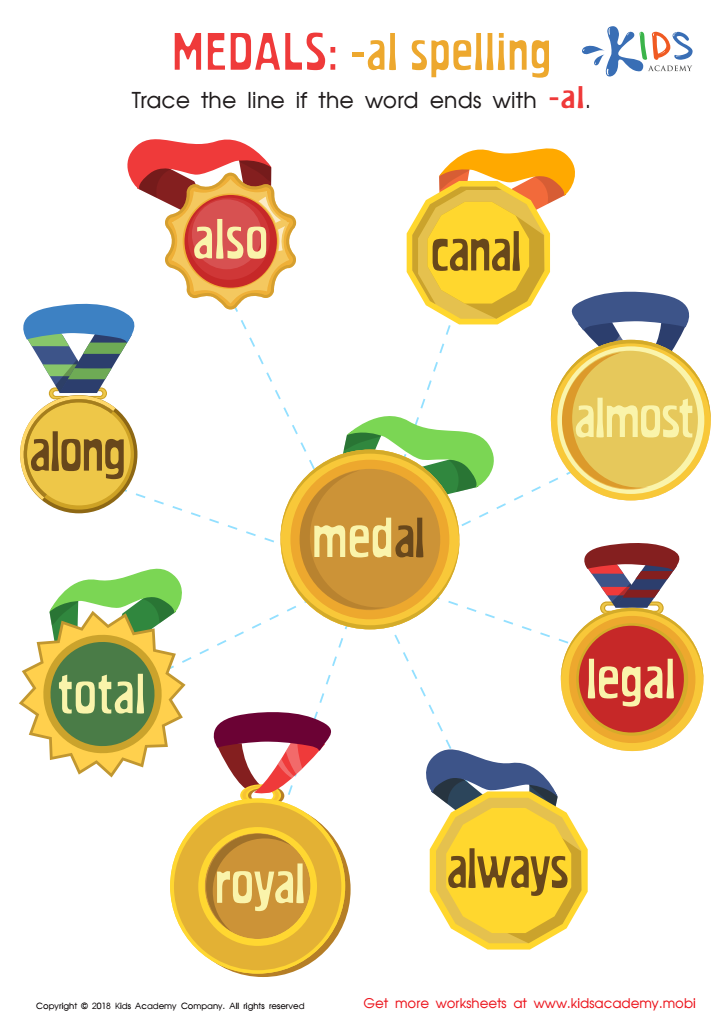

Medals: Al Spelling Worksheet
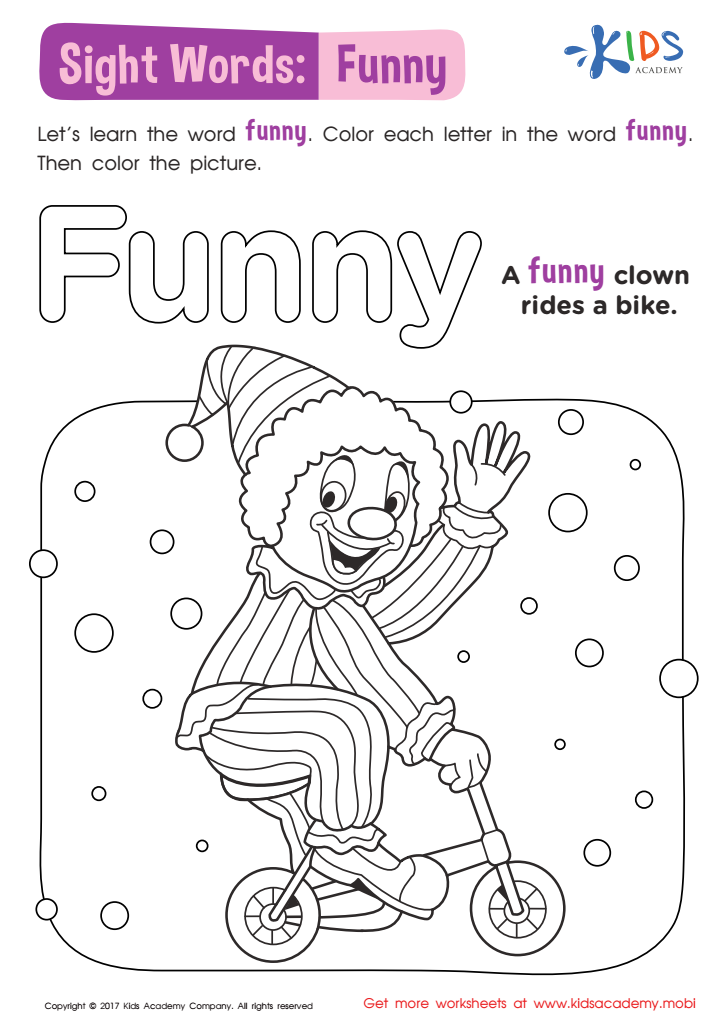

Funny Worksheet Sight Words Worksheet
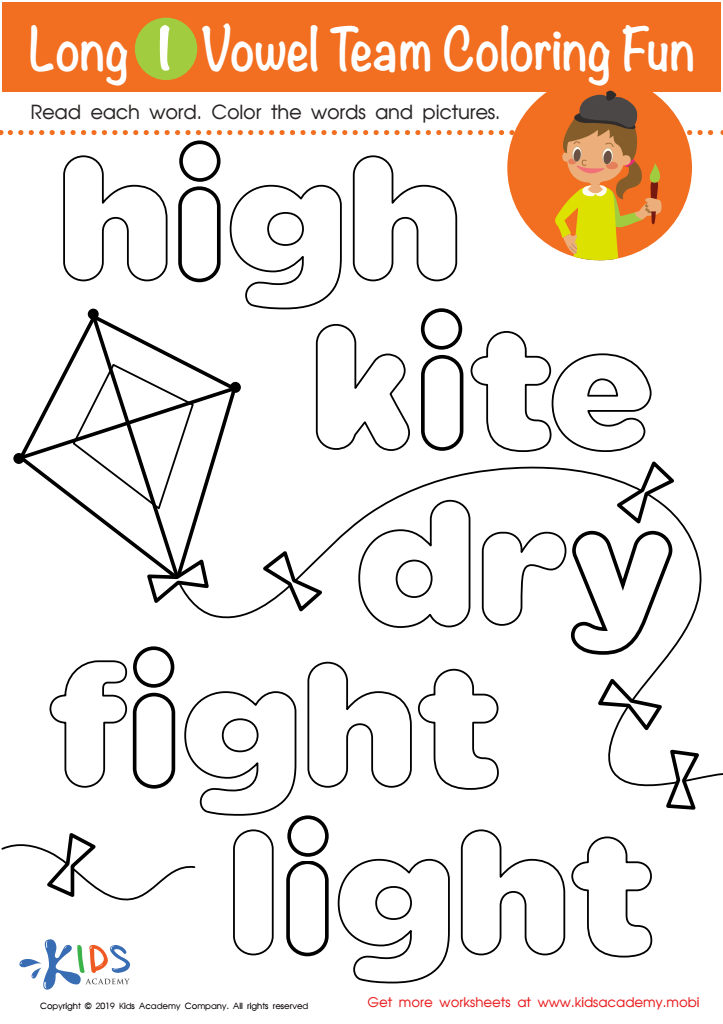

Long I Vowel Team Coloring Worksheet
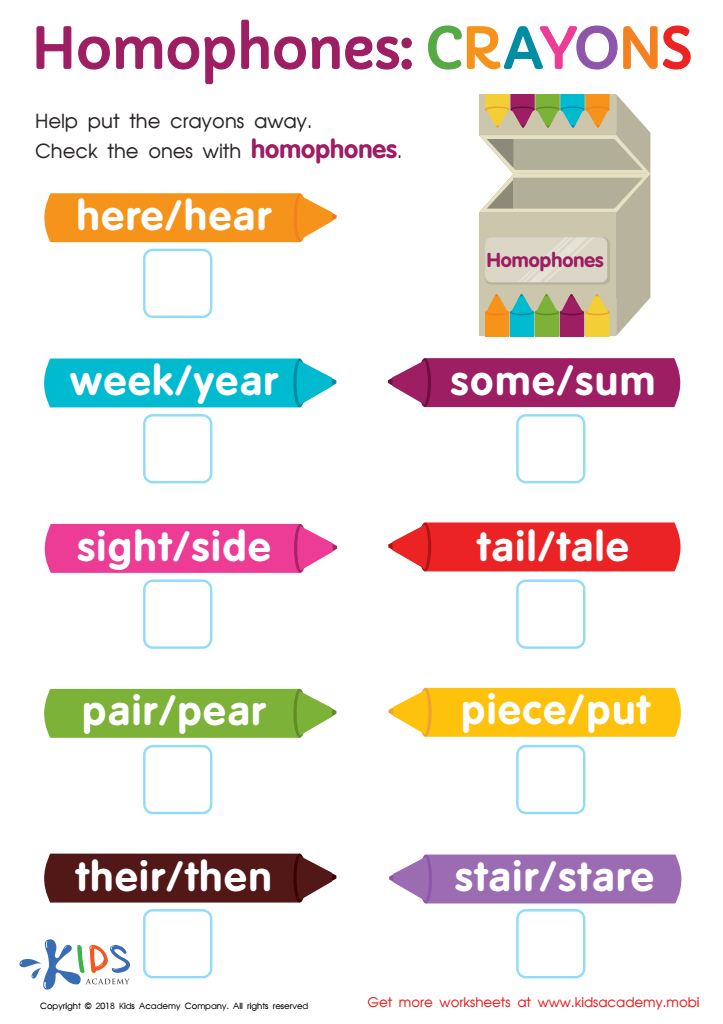

Homophones: Crayons Worksheet
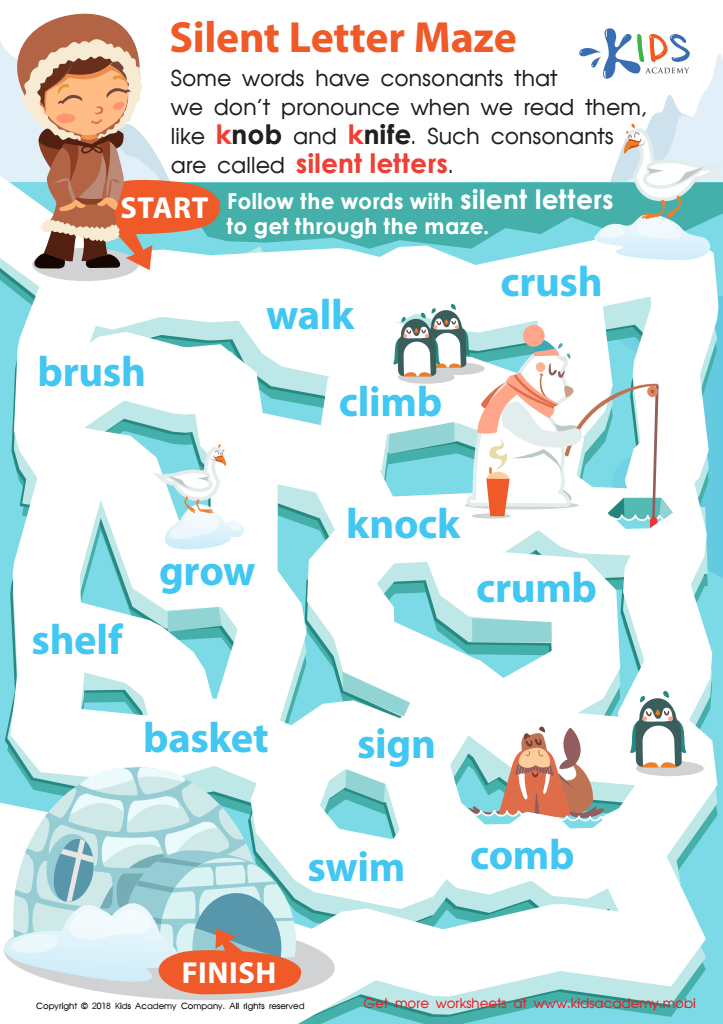

Silent Letter Maze Worksheet
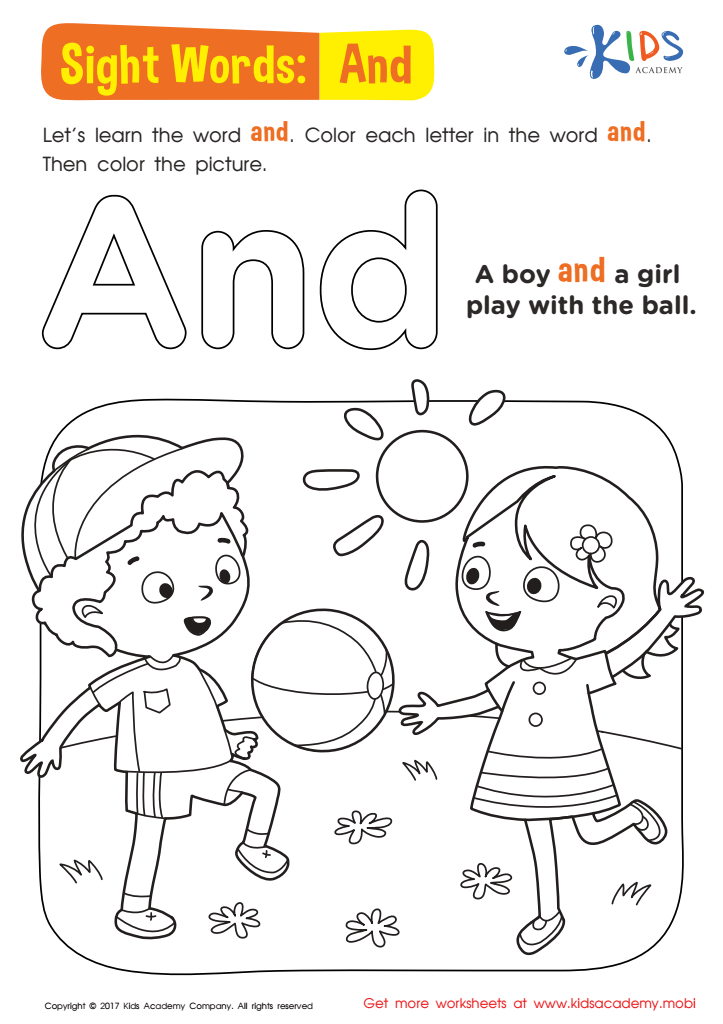

And Worksheet Sight Words Worksheet
Spelling practice is essential for 9-year-olds as it fosters literacy skills, enhances vocabulary, and boosts confidence in written communication. At this age, students are transitioning from learning to read to reading to learn, making strong spelling skills crucial for academic success across subjects. A solid foundation in spelling enables students to decode words, which not only improves their reading fluency but also helps them develop better comprehension skills.
Additionally, effective spelling practice encourages cognitive development. When children engage in spelling activities, they learn to recognize patterns in words and understand phonetics, which enhances their critical thinking and problem-solving abilities. This is particularly important in a world where digital communication is prevalent, and spelling can impact how one's writing is perceived.
Furthermore, spelling practice nurtures a sense of achievement as children master challenging words, fostering motivation and a positive attitude toward learning. For parents and teachers, facilitating regular spelling activities—be it through games, quizzes, or writing exercises—supports their child's educational journey. By prioritizing spelling practice, adults can help their children become proficient writers and effective communicators, setting them up for future success both academically and socially.

 Assign to My Students
Assign to My Students


















